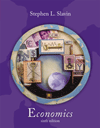

 Economics, 6/e Corporate Mergers And Antitrust Chapter 26 - Corporate Mergers and Antitrust |
 2002 McGraw-Hill Higher Education
2002 McGraw-Hill Higher EducationAny use is subject to the Terms of Use and Privacy Policy.
McGraw-Hill Higher Education is one of the many fine businesses of The McGraw-Hill Companies.